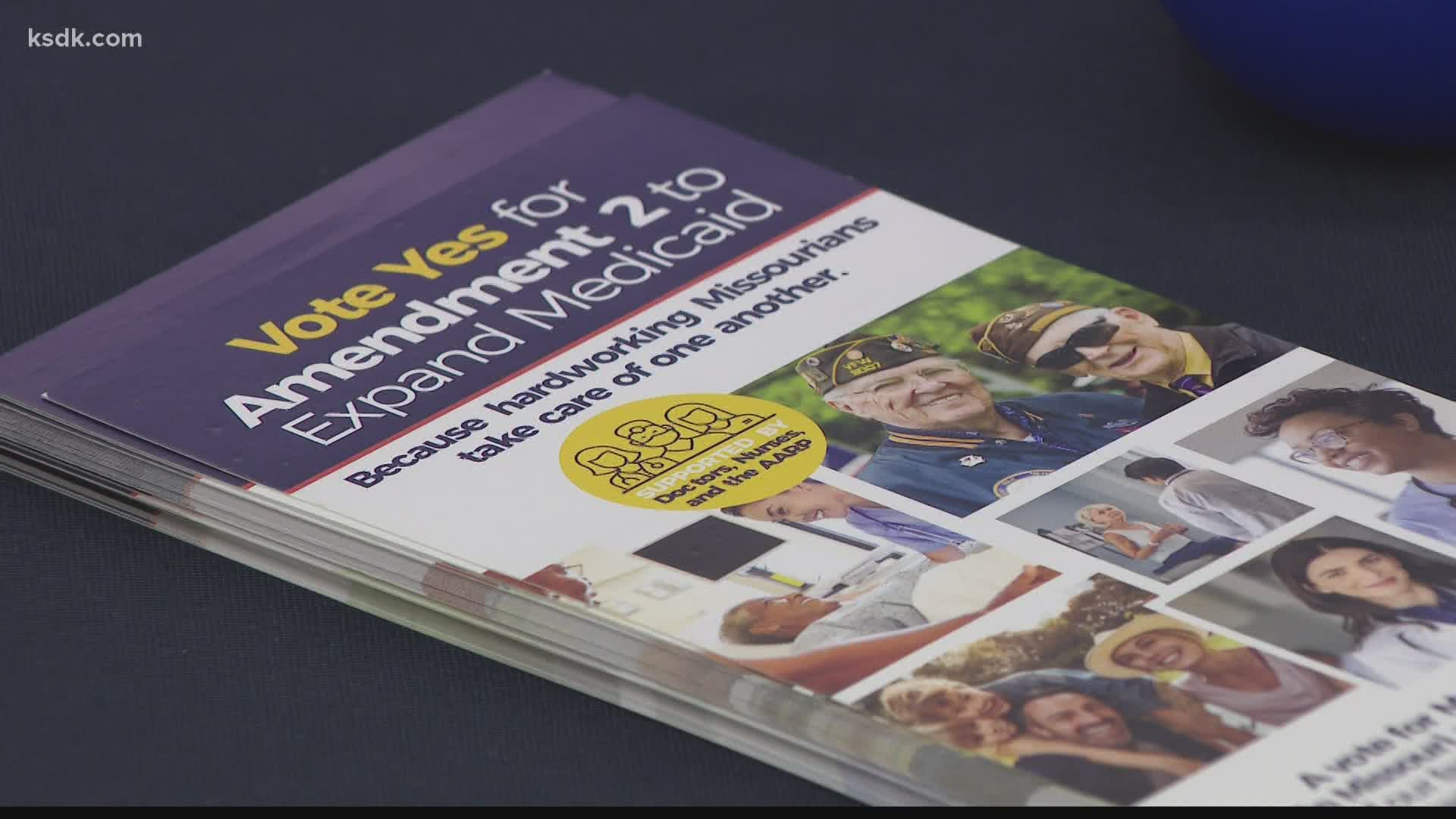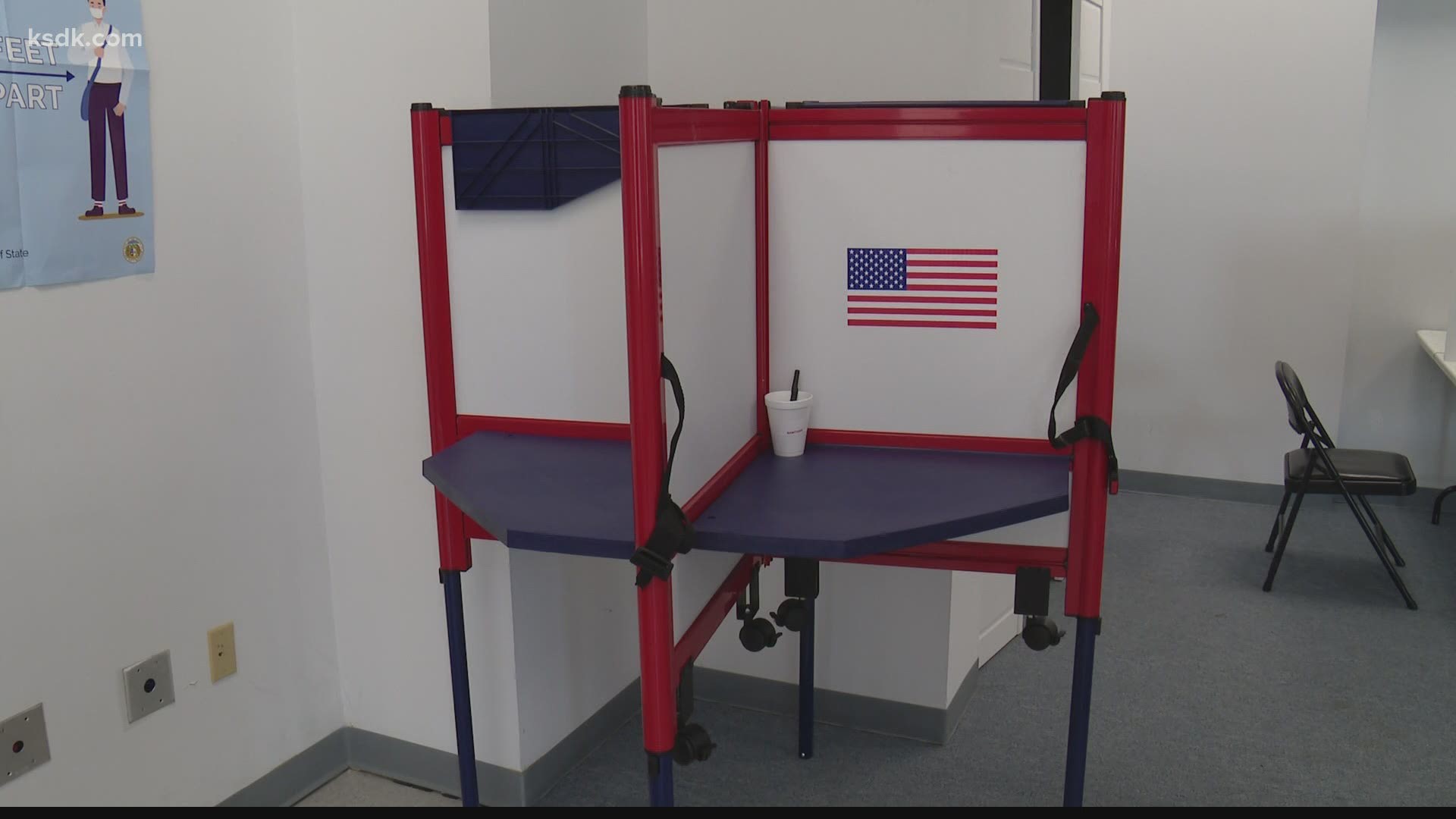ST. LOUIS — Missouri voters have the opportunity to cast their votes on Amendment 2 during Tuesday's primary elections.
The amendment would expand the pool of people who are eligible to receive Medicaid, a state- and federally-funded program to provide healthcare for low-income Americans.
Missouri's Medicaid program is called MO HealthNet. Under current restrictions, Missourians are only eligible for the program if they make less than 22% of the Federal Poverty Level (FPL).
That's about $4,778 per year for a family of three and $5,674 for a family of four.
To qualify, you also have to be a parent, pregnant, blind, have a disability, living with someone who has a disability or a senior citizen. That means, under current law, individuals who are low income do not qualify for Medicaid in Missouri.
Amendment 2 would allow anyone between the ages of 19 and 64 who makes less than $18,000 a year to qualify for Medicaid. The amendment text says the expansion would allow for people in that age group with an income level at or below 133% of the FPL will qualify, but Healthcare.gov says that percentage actually comes out to 138% because of the way it's calculated.
That would mean a family of three with an annual income up to $29,974 would qualify. A family of four with an annual income of up to $36,156 would qualify.
It would also mean an individual would be eligible based on income alone if their annual income is at our below $17,608.
While champions for the amendment say it would allow thousands of low-income Missourians to receive life-saving medical care, opponents cite funding and opposition to government intervention in state and local healthcare funding.
Ninety percent of funding for Medicaid expansion would come from the federal government, from federal taxes Missourians are already paying. The state would have to come up with the other 10% which has an estimated one-time cost of about $6.4 million.
Anita Manion, a political analyst for 5 On Your Side, said additional taxes for Missourians to pay for a potential expansion aren't likely.
"The only way we'd see additional taxing would be if this did end up with some kind of budget deficit," Manion said. "If those projections did come true, we would need to raise additional funds, but it's less likely you would see more taxes and more likely, in that scenario, you'd see cuts to other programs,"
Those potential cuts are one of the reasons Republican state Sen. Bob Onder, of St. Charles County, said he is against Amendment 2.
"It will not be great for school children who will have their state funding cut because we've spent all this money," Onder said. "It will be not great for our roads and our bridges in rural Missouri."
However, organizers of the "Yes on 2" campaign said research shows that by 2026, expanding Medicaid would save the state more than $1 billion because providing more healthcare to low-income families and individuals would alleviate the burden for state healthcare funding down the line.
The campaign has been heavily backed by hospital systems and healthcare workers who say expanding Medicaid is now more crucial than ever with many low-income individuals working as essential employees on the front line of the coronavirus pandemic.
Passing Medicaid expansion was one of the initiatives within the Affordable Care Act under the Obama administration. In 2012, the Supreme Court ruled that states would not be required to expand. However, 38 states and the District of Columbia, have opted to expand Medicaid.
"One interesting thing is we've seen some conservative states like Nebraska, Utah and, most recently, Oklahoma just last month, do what Missouri is attempting to do and that's circumvent a conservative governor and state legislature and go through a ballot initiative to try to get this passed," Manion said.
Missouri Governor Mike Parson does not support Medicaid expansion.
"We haven't expanded because we are the Show-Me State," Onder said. "We just don't buy that kind of Washington bunk."
The "Yes on 2" campaign stated nearly 350,000 voters signed a petition to get the amendment on the ballot, which is more than twice the amount required.
Gov. Parson moved the ballot initiative to the August primary back in May. Missouri ballot initiatives automatically go on the November general election ballot unless the governor acts otherwise.


